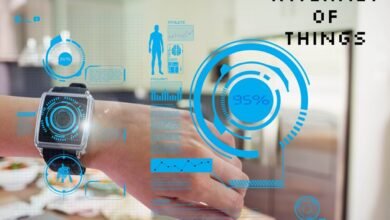Revolutionizing Health Tech: The Impact of Best Wearable Health Tech.

In the realm of modern healthcare, the advent of wearable Health Tech has sparked a revolutionary shift in how individuals monitor and manage their well-being. The utilization of wearable health tech, encompassing a diverse array of devices such as smartwatches, fitness trackers, and sensor-equipped clothing, has become increasingly prevalent in today’s society. These innovative devices enable individuals to track various health metrics in real-time, empowering them to take proactive steps towards improving their health and leading more active lifestyles.
The impact of wearable health tech extends beyond individual health management, revolutionizing patient care and transforming traditional healthcare paradigms. With the ability to remotely monitor patients’ health status and adherence to treatment plans, wearable devices facilitate more personalized and proactive healthcare interventions. This introduction delves into the multifaceted benefits and implications of wearable health technology, highlighting its potential to revolutionize healthcare delivery and empower individuals to take control of their health journey.
The Impact of Best Wearable Health Tech.
Introduction to Wearable Health Tech
Wearable health tech refers to devices that individuals can wear to track various health metrics, such as heart rate, activity levels, sleep patterns, and more. These devices come in various forms, including smartwatches, fitness trackers, and even clothing with embedded sensors. The primary purpose of wearable health tech is to provide users with real-time data about their health status, empowering them to make informed decisions about their well-being.
Benefits of Wearable Health Tech
The adoption of wearable health tech brings a multitude of benefits for individuals and the healthcare system as a whole. Firstly, it allows for the continuous monitoring and tracking of health metrics, enabling early detection of potential health issues. By providing users with instant feedback on their activity levels, sleep quality, and vital signs, wearable devices empower individuals to take proactive steps towards improving their health.
Furthermore, wearable health tech plays a crucial role in revolutionizing patient care. Remote patient monitoring, facilitated by wearable devices, allows healthcare providers to monitor patients’ health status outside of traditional clinical settings. This not only enhances patient autonomy but also enables early intervention in case of health emergencies or deterioration.
Impact on Chronic Disease Management
One area where wearable health tech has shown significant promise is in the management of chronic diseases. Conditions such as diabetes, hypertension, and heart disease require continuous monitoring and management, which can be challenging for both patients and healthcare providers. Wearable devices offer a solution by providing patients with personalized insights and recommendations based on their health data, helping them manage their conditions more effectively.
Moreover, wearable tech has the potential to reduce healthcare costs by minimizing hospital readmissions and preventing complications associated with chronic diseases. By enabling early detection of changes in health status, wearable devices can prompt timely interventions, thereby improving patient outcomes and reducing the burden on the healthcare system.
Wearable Health Tech and Public Health
Beyond individual health benefits, wearable health tech also holds promise for improving public health outcomes. These devices collect vast amounts of data on users’ health behaviors and outcomes, which can be anonymized and aggregated to identify health trends and patterns at the population level. This data can inform public health interventions, such as targeted health promotion campaigns or early warning systems for infectious disease outbreaks.
Challenges and Limitations
However, the widespread adoption of wearable health is not without its challenges and limitations. Data privacy and security concerns remain a significant barrier to adoption, as users may be hesitant to share sensitive health information with third-party companies. Moreover, integrating wearable devices into existing healthcare systems poses technical and logistical challenges, particularly regarding data interoperability and integration with electronic health records.
Additionally, affordability and accessibility issues may limit the reach of wearable tech, particularly among underserved populations. Ensuring equitable access to these technologies will be essential to harnessing their full potential for improving health outcomes across diverse communities.
Future Trends and Innovations
Despite these challenges, the future of wearable health tech looks promising, with ongoing advancements in sensor technology, artificial intelligence, and machine learning. These innovations will enable wearable devices to provide even more personalized insights and recommendations, further enhancing their utility in preventive medicine and chronic disease management. As these technologies continue to evolve, wearable health is poised to become an indispensable tool for promoting health and well-being worldwide.
Read More: IoT in Healthcare Setting Up Remote Patient Monitoring In 2024
Conclusion
FAQs
Are wearable health devices accurate?
Most wearable health devices provide reasonably accurate data, but their accuracy can vary depending on factors such as device quality and placement on the body.
Can wearable health tech replace traditional medical care?
Wearable health tech can complement traditional medical care by providing additional insights and monitoring outside of clinical settings, but it is not a substitute for professional medical advice and treatment.
How can I ensure the privacy of my health data when using wearable devices?
To protect your health data privacy, choose reputable devices from trusted manufacturers, carefully review privacy policies, and consider opting out of data sharing when possible.
Are wearable health devices covered by insurance?
Some insurance plans may cover the cost of wearable health devices, particularly if prescribed by a healthcare provider for specific medical purposes. However, coverage varies widely depending on the insurance provider and the purpose of the device.
What are some upcoming innovations in wearable health tech?
Future innovations in wearable health tech may include advancements in sensor technology, such as non-invasive glucose monitoring for diabetics, as well as integration with emerging technologies like augmented reality for enhanced user experiences.











